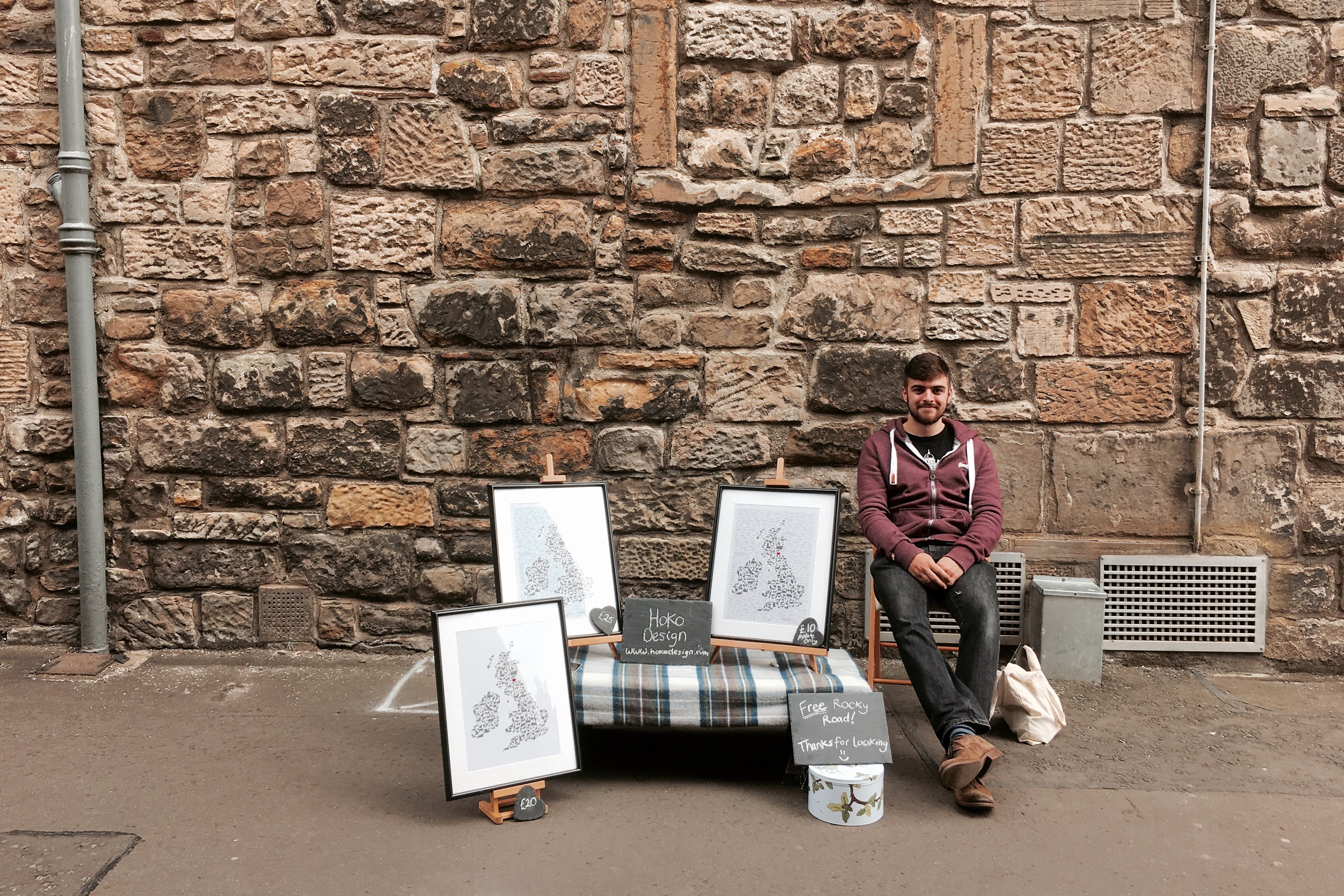Fringe show is ‘dream come true’ for man diagnosed with cancer
Thirty-year-old to launch his book at Edinburgh Fringe later this month

Your support helps us to tell the story
From reproductive rights to climate change to Big Tech, The Independent is on the ground when the story is developing. Whether it's investigating the financials of Elon Musk's pro-Trump PAC or producing our latest documentary, 'The A Word', which shines a light on the American women fighting for reproductive rights, we know how important it is to parse out the facts from the messaging.
At such a critical moment in US history, we need reporters on the ground. Your donation allows us to keep sending journalists to speak to both sides of the story.
The Independent is trusted by Americans across the entire political spectrum. And unlike many other quality news outlets, we choose not to lock Americans out of our reporting and analysis with paywalls. We believe quality journalism should be available to everyone, paid for by those who can afford it.
Your support makes all the difference.Having battled depression and suicidal feelings since he was 15, Duncan Campbell never thought he would achieve his dream of performing at the Edinburgh Fringe or writing a book but after a terminal cancer diagnosis gave him a new lease of life, he will take to the stage later this month.
The 30-year-old, who lives in Glasgow’s Anniesland, was diagnosed with stage four brain cancer in February 2021.
He has written a book about his mental health battles called The Suicide Notes, which he will launch through a one-man show at the Fringe between August 14 and 25 at Gladstone’s Land.
He said: “I am so lucky to have the chance to be able do two things I’ve always dreamed of – performing at the Fringe and publishing a book. I never thought these things would happen to me.
“I was set on suicide. Depression is a really draining way of existing.
“I didn’t have the energy to have a good time. I was isolated because I pushed people away.
“I made myself believe the lie that the best thing I could do was kill myself.
“I thought I would free my family and friends of the burden. Now I realise that couldn’t be further from the truth.”
Mr Campbell says he has a “moral obligation” to tell his story in order to help others going through the same battle.
He has had around 20 MRI scans, surgery on his brain as well as chemotherapy and radiotherapy.
Following surgery, he used a wheelchair for more than two months and learned to walk again by using the AlterG machine which has also been used by tennis player Andy Murray to help his rehabilitation.
Mr Campbell added: “The book is going to help people understand what their friend might be going through, which could help them save a life.
“For people who care about somebody they think might be struggling, it’s hard to have that conversation. I hope my legacy can be to make it a bit easier for those conversations to start.
“I don’t know what I can do while I’m still alive to prevent people from experiencing terminal cancer, but I do hope the book and my show can help to prevent people from committing suicide.”
Before his diagnosis, Mr Campbell said he was “constantly criticising” himself and when he tried to plan for the future, he was “overcome with anxiety”.
It shouldn’t have taken a diagnosis to free myself from the mental pain which stopped me from living my life
He added: “Now, I live in the present, as I have no other choice. I’ve got a terminal disease so there’s a rational reason to feel down, but in a strange way it allows me to stop worrying.
“It shouldn’t have taken a diagnosis to free myself from the mental pain which stopped me from living my life.
“My brain was attacking itself. It knew all my weaknesses, shortcomings and fears. It was picking me apart every second of every day.
“Now I’ve found a route to happiness – being able to share my story and help others has given me a purpose which has helped to overcome depression.”


